By creating extra momentum through rapid “lightning” movements of the muscles of the head and neck, the cobra can shoot poison up to two and a half meters with impressive accuracy.
If you anger a cobra, there is a high chance that it will stand up and spit venom directly into your eyes. Humans have known about this since time immemorial, but only recently has it become clear that this behavior is not random from an evolutionary point of view. It is possible that the snakes learned this method of self-defense in response to aggression from our ancestors.
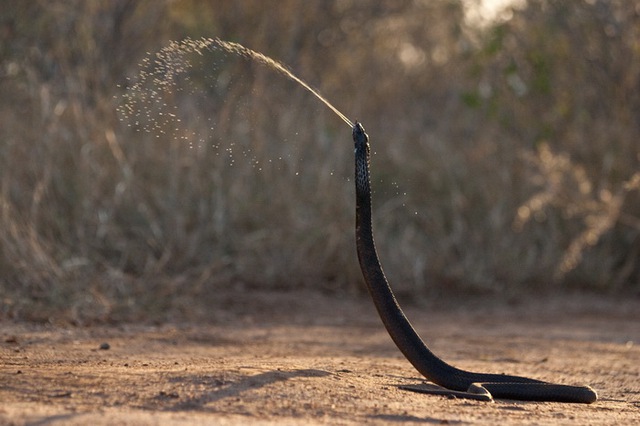
Why did the snakes begin to know how to spit venom?
There are more than 600 species of venomous snakes on the planet, yet only three subgroups of them possess “long-range weapons”. These are cobras native to Africa, Asia and Rinkhals (ring-necked venomous cobra Hemachatus haemachatus).
The world’s largest venomous cobra | National Geographic
In fact, their method of spraying venom is not the same as the act of spitting by humans. Poison is sprayed from the snake’s fangs under high pressure just like we humans use a syringe. By creating extra momentum through rapid “lightning” movements of the muscles of the head and neck, the cobra can shoot poison up to two and a half meters with impressive accuracy.
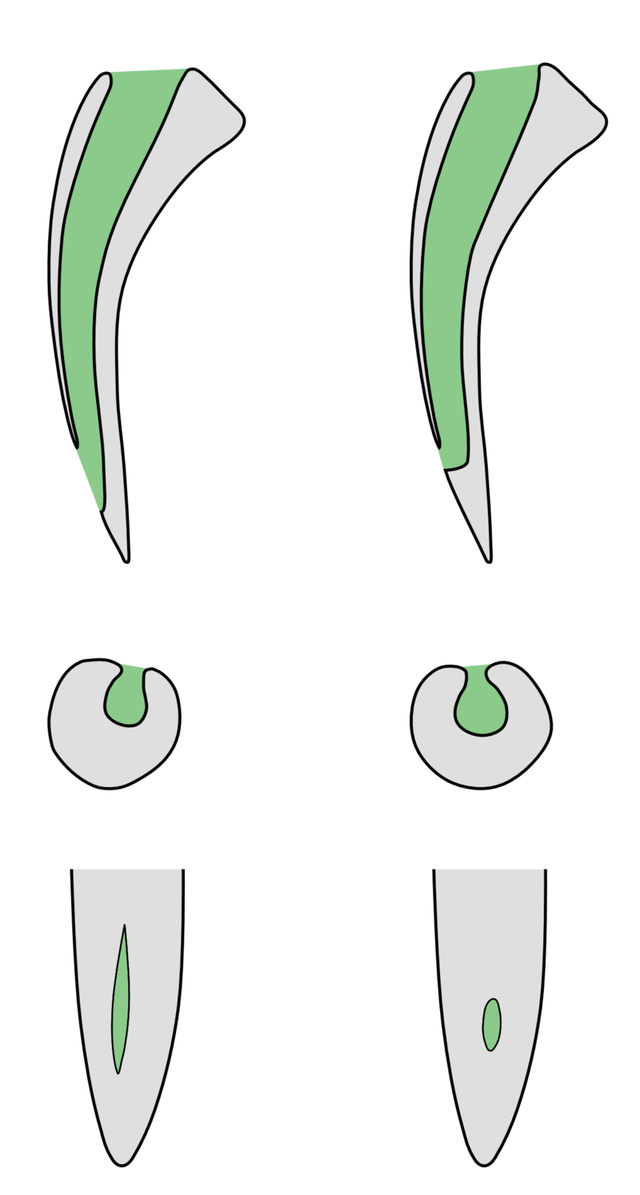
Comparison diagram between parts of venomous cobra fangs (right) and non-poisonous cobras (left). The cobra spits poison on the right. 1: Cross section of the entire canine in the sagittal plane. 2: Cross section through the canine at the injection hole. 3: Frontal projection of the nozzles.
Interestingly, the venom of these spray snakes is not fatal, and they are only intended to protect themselves from potential predators, not to kill. This tactic is quite strange, as the venom of other cobras contains a variety of dangerous poisons that can paralyze and sometimes kill the person bitten. However, when studying snakes that spit, scientists have identified the main component of their venom is phospholipase A2 (PLA2). The compound itself does not increase the lethality of snake venom, so venomous snakes must “add” other poisons to make their “victims” suffer more.
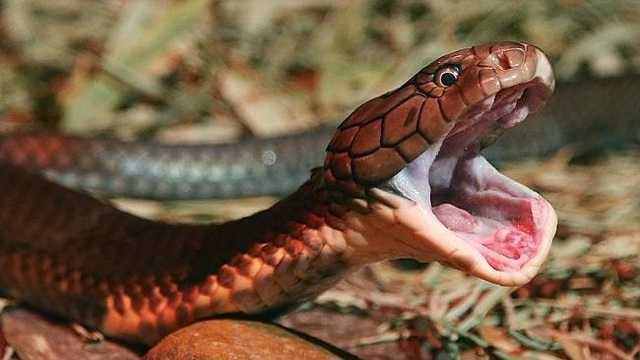
And yet, the scientists discovered another interesting fact about venomous cobras – both the “shooting” mechanism and the painful poison rich in phospholipase A2 developed in three separate groups. separate and completely independent of each other.
King cobra spits poison| Snake City
This is a great example of convergent evolution, the appearance of the same signs in different types of organisms. Most likely, it is the result of snakes facing a common enemy in their habitat. In this case, we are talking about hominins – primates, which include Homo sapiens, their extinct ancestors and relatives, as well as several other species of monkeys.
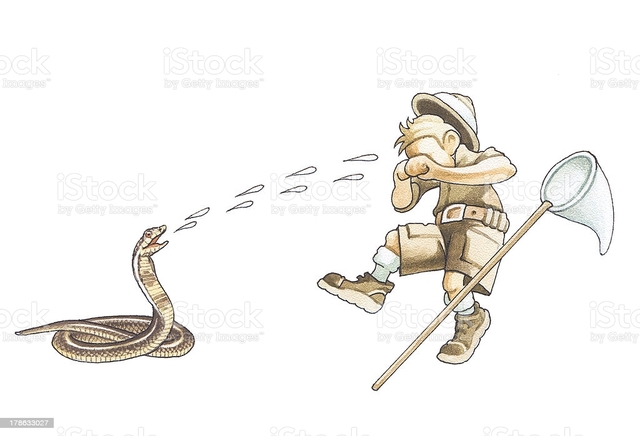
Traditionally, the representatives of this subfamily are not very fond of snakes, or rather, they consider snakes to be sworn enemies. They are social creatures, known for their ability to collectively hunt anything they perceive as an obvious threat.
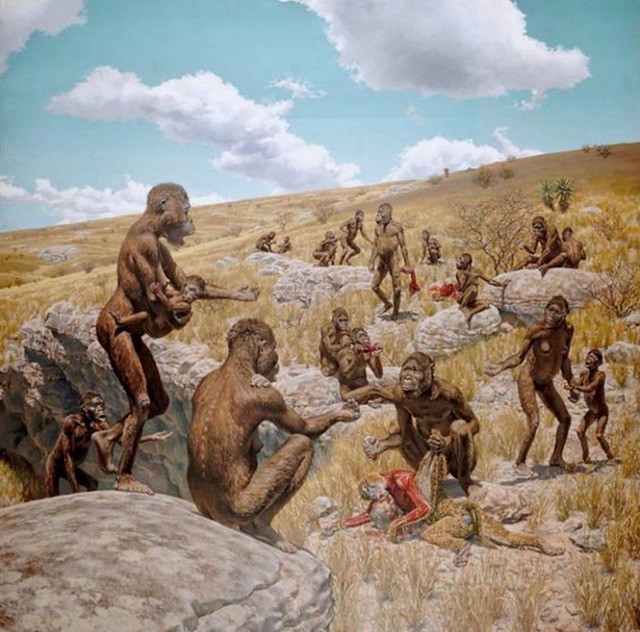
Communities of these primates inadvertently exert selective, targeted pressure on snakes everywhere. The situation became even more critical and “completely unacceptable” as the hominins learned to walk on two legs. They begin to see much further around, their powerful forelimbs released to throw stones and other objects.
In addition, they became significantly smarter and began to produce more and more effective weapons. All of this leads some scientists to believe that snakes have learned to “shoot” poison – as a response to increasing danger.
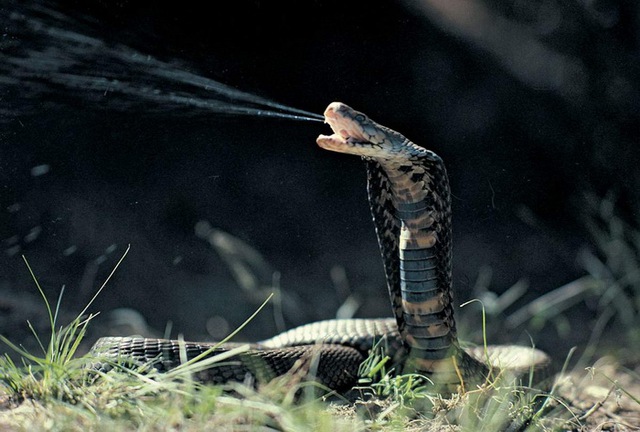
In 2021, the journal Science published a research paper trying to find out exactly when snakes began to learn to “spit” in their development history. The scientists analyzed the difference between the poison of modern reptiles and the traces of venom in their fossil remains. As it turned out, the appearance of this ability to spray poison in different parts of the world exactly coincided with the appearance of upright hominins in that area. For the African branch of the poisonous spitting cobra, this number is 10.7-6.7 million years ago, while for the Asian branch it is between 4.2 and 2.5 million years.
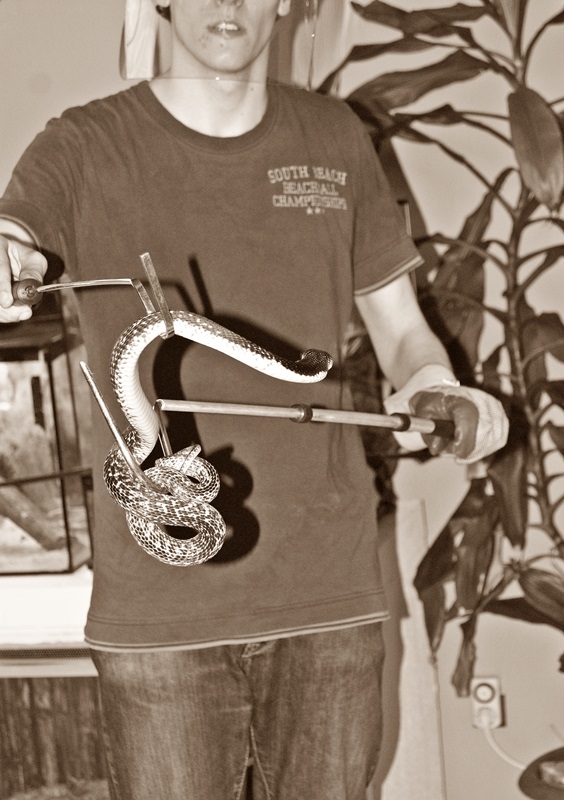
The person who catches a Naja siamensis snake must use eye protection
It is clear that such distant past events are hardly verifiable, but the hypothesis described also sounds quite convincing. Especially if you look at how the descendants of those hominins, i.e. you and me, treat nature and the animal world.
